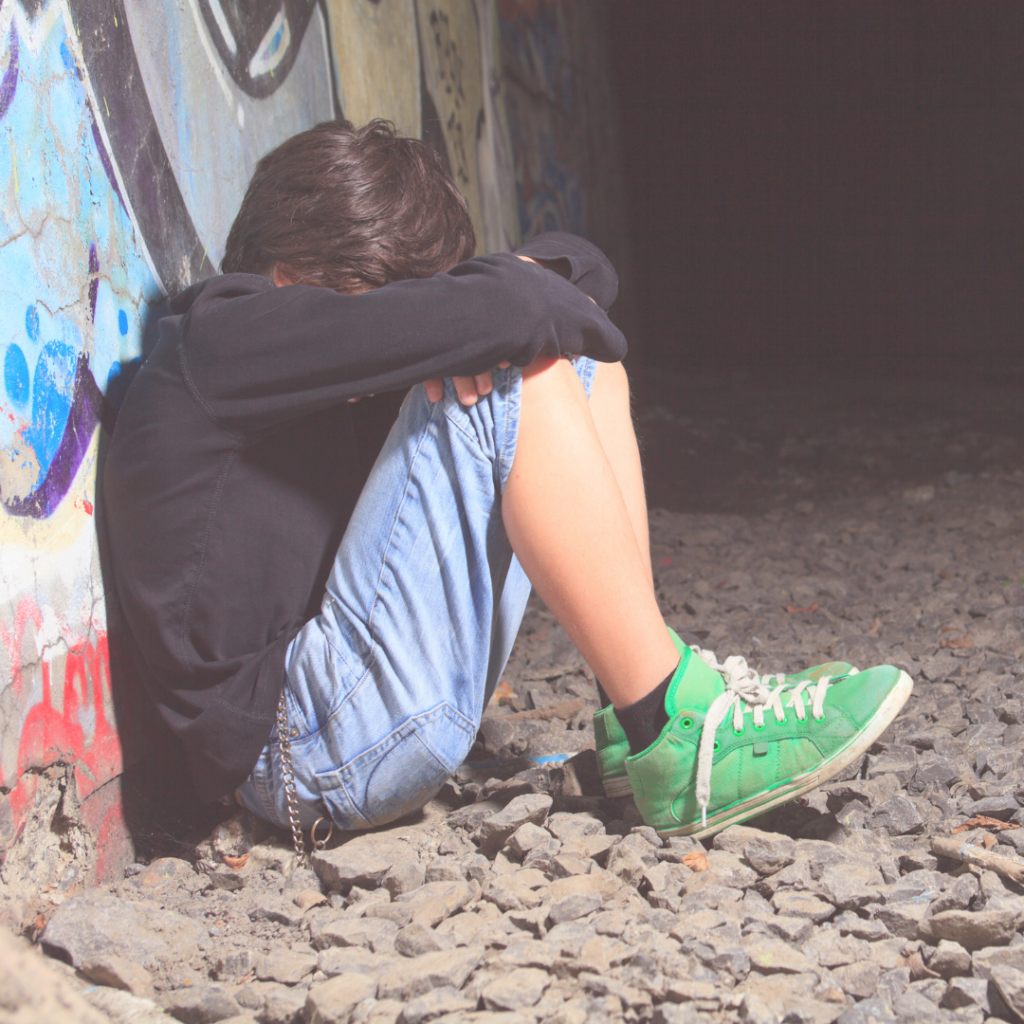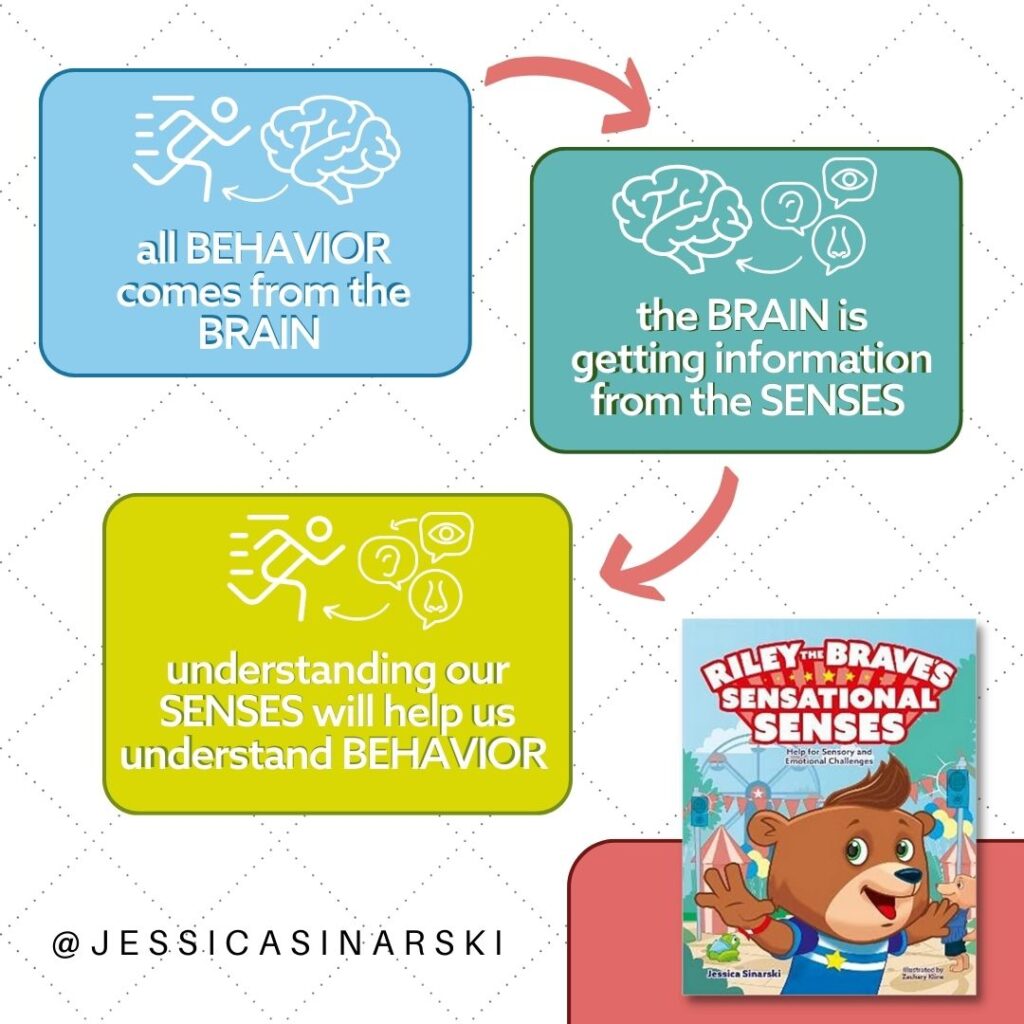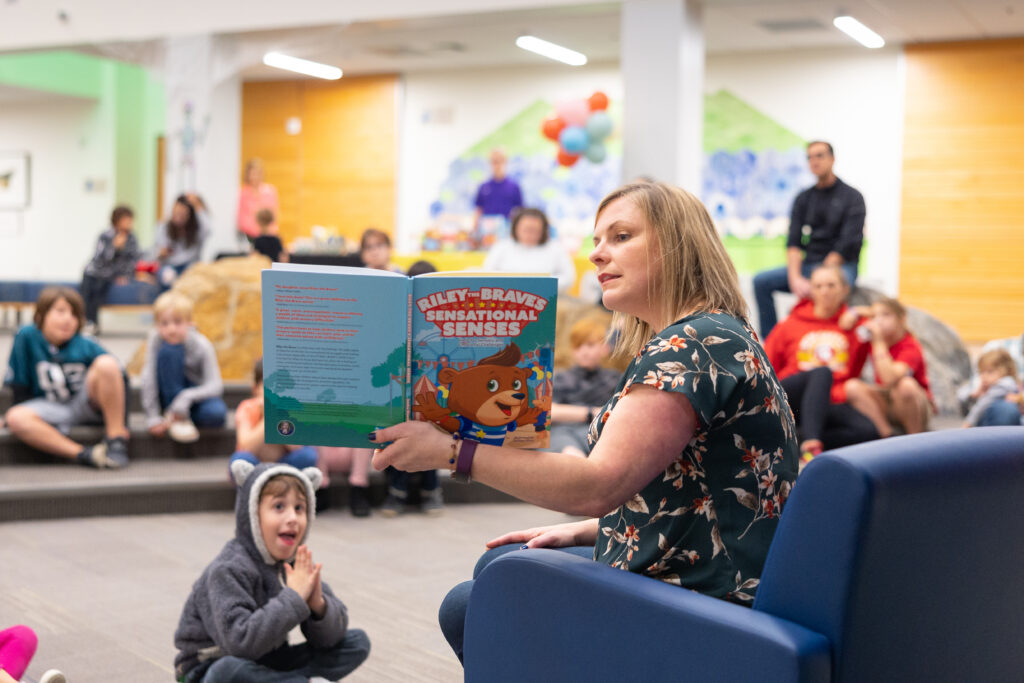This blog post was written by JKP author Jessica Sinarski, LPCMH.
Here’s the magic of understanding our senses. Joe (real person but not his real name) was diagnosed with Generalized Anxiety Disorder and was in counseling by age 6. Over the next 3 years, various psychologists and therapists taught him and his parents every tool they had to help calm his anxiety and reduce his meltdowns. But nothing changed. Actually, things got worse.
Stress, meltdowns, bizarre behavior, and school challenges continued.
Joe told a therapist and his mom that he didn’t always want to keep living if this was how life would be. He was only 9 years old.

His parents reached out to me, understandably heartbroken and distraught. As they talked about his “symptoms,” my heart broke too. It seemed clear that his brain was in survival mode, and his senses were all out of whack. His downstairs brain was running the show!
Unfortunately, all the tools he had been given by well-intentioned professionals required upstairs brain powers that he couldn’t reach! He had been living in a state of constant fight, flight, or freeze, and being told to “use a coping skill” just heaped on more feelings of failure, brokenness, and shame.
Joe’s distressing thoughts and behavior were coming from distressed senses sending confusing signals to his little brain.

I talked with his parents a little about the senses and sent home a copy of Riley the Brave’s Sensational Senses.
“That’s what happens to me! That’s what it feels like.”
Mom reached out afterward and said that Joe was captivated by the book. “He made me read all the way through, even the afterword for grown-ups.” This is what Joe was feeling every single day. It’s no wonder he was struggling!
I referred them to an Occupational Therapist who specializes in sensory integration (shout out to Bloom and Grow in Kennett Square, PA). Joe has been jumping, crashing, swinging, and crawling with his OT for over 3 months. He has fewer meltdowns, recognizes when he is dysregulated (usually!), and knows what helps him feel better.
How could a picture book about the senses possibly help??
Riley the Brave’s Sensational Senses gave Joe and his parents some understanding and language to share about the wacky world of sensory processing.
Working with the school, Joe started using new seating options, including a wobble chair or the option to stand or lay down to work when it wouldn’t disrupt others. Noise canceling headphones made it possible for him to work on assignments in a quiet corner or in the hallway when he was feeling overwhelmed by the sounds in the classroom. If he did need a break, five minutes of deep muscle work like pushing, pulling, bike pedaling, jumping, or crab walks would help him be learning-ready again instead of losing a whole afternoon of instruction.
Not only is Joe happier and enjoying school again, but parents, teachers, and all the adults around him feel like they have the tools to help him succeed.
I have been part of countless experiences like Joe’s where understanding sensory processing has been a game-changer!
I’m super excited to share that with you and the brave cubs in your life in Riley the Brave’s Sensational Senses. When we understand the senses and the role they play in behavior, we can create sensory rich environments that help kiddos thrive. Educators can move beyond playing behavior management whack-a-mole. Therapists can help their clients with what’s really going on.
Most of us didn’t learn anything about the senses in our formal education, even in college or graduate school! My hope with this book is that kids and adults alike will have another essential piece of the feelings/behavior puzzle.

Check out Riley the Brave’s Sensational Senses, along with the rest of the Riley the Brave series here!